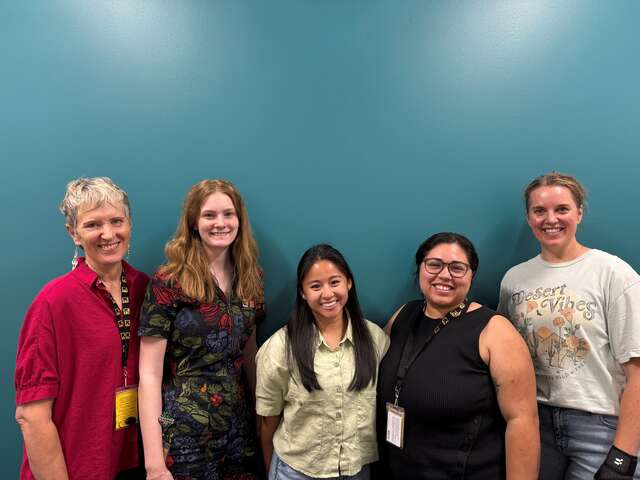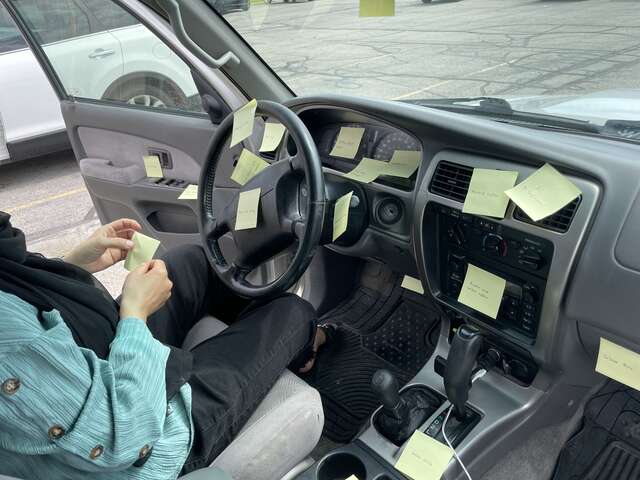The International Rescue Committee (IRC) in Utah is committed to supporting our newest neighbors by providing holistic programs and services that promote independence and self-reliance. One initiative that bolsters case management efforts in Utah pairs the expertise of budding Occupational Therapists with refugees and new Americans who face additional barriers to self-sufficiency. This program is spearheaded by Yda Smith, PhD, OTR/L, who formerly served as faculty at the University of Utah’s College of Health’s Department of Occupational & Recreational Therapies since 1999. This first-of-its-kind Occupational Therapy (OT) fieldwork program continues to help our newest neighbors to accomplish their goals.

“OT encompasses all aspects of life from mental capacity to physical capacity, and everything that is important to the person in between,” noted Yda during a recent group interview with OT practicum students who completed their fieldwork over the summer.
For the OT practitioners, their efforts—alongside coordinated case management services—have been essential to helping vulnerable refugee families establish and find success in their new home. Arrival to the U.S. and settling into a new home is no simple task: families face momentous barriers from learning about life in a new community and acquiring new language skills to navigating transit, engaging with new education and healthcare systems, and much more. All families receive case management supports to aid them along their resettlement journey; the OT program steps in to help break down the barriers into bite-size tasks that anyone can work to accomplish.
OT can help individuals live more active and intentional lives by providing resources to help individuals form habits, acquire education, and receive mental/physical health help. Given the scope of the program, OT practicum students work one-on-one with individuals and families to provide supportive repetition and other techniques to support long-term learning while factoring in a holistic understanding of health and wellbeing to support an individual’s personal success. This ranges from supporting the formation of daily health habits to teaching (or re-teaching) individuals life skills such as using kitchen appliances, practicing home hygiene, and using new technologies.
Alexis Player, an OT student who completed their fieldwork over the summer, helped Nadine improve her confidence in using the oven in her apartment:
“After first meeting with Nadine, we learned that she was not comfortable following a recipe or using the oven in her apartment. We were able to work with her to set progressive goals towards independence in both of these skills. Along the way, we helped her learn the purpose of, and how to use, each button on the oven, how to follow step-by-step instructions, and how to use google to answer questions. We were able to encourage our client and increase her confidence in her abilities till she was able to complete her goals by baking a delicious cake!”
In addition to one-on-one supports, the OT students also run group learning spaces, including an Employment Class and a Pre-Driving Class that help those facing common barriers to overcome and progress. The OT-run pre-driving class supports individuals working to acquire their driving permit in Utah. The class teaches individuals to identify different parts of the car, prepares them for their permit exam, and familiarizes individuals with state and federal driving practices.

Each semester, Yda works with an average of four OT students to complete their fieldwork assignments through partnerships with the University of Utah and a number of other universities across the nation. Students gain unique, practical hands-on experience working alongside refugee and new American families who are striving to become self-sufficient, contributing community members.
You can learn more about the IRC in Utah’s Occupational Therapy program by emailing us at SaltLakeCity@Rescue.org. The IRC works with a number of universities and colleges to place students in a variety of internships each semester. Learn more at Rescue.org/InternSLC »